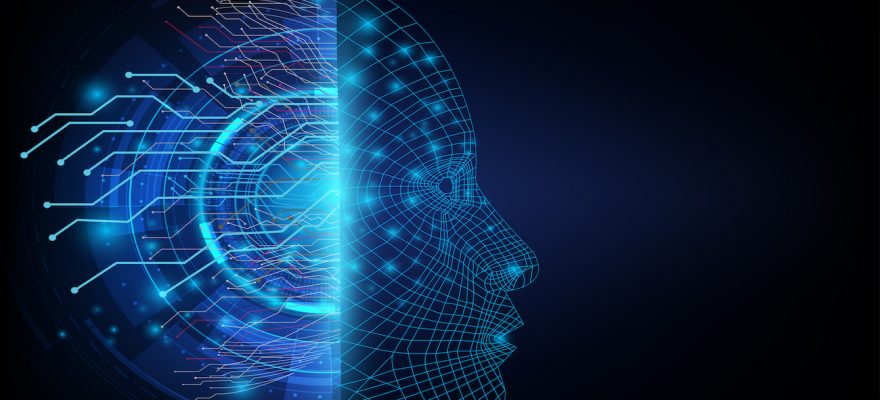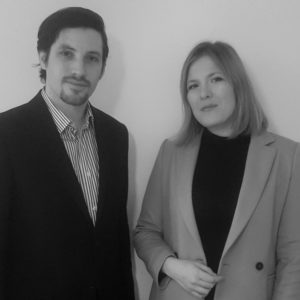

Sébastien Lachaussée & Elisa Martin-Winkel
Creation with Artificial Intelligence (AI) and copyright law
GPT Chat, Dall-E 2, Midjourney … allow you to generate text or images from textual instructions. To do this, AIs « dig » from a database of pre-existing texts or images thanks to the metadata characterizing such sources.
The possible uses are numerous for the public as well as for artists or professionals.
From a legal point of view and more specifically considering intellectual property, this raises many questions, particularly about the authorship of works created from AI software.
Indeed, under French law, to benefit from copyright protection, a work must be original and reflect the imprint of the author’s personality by a personal and intellectual contribution.
In this context, it is necessary to consider all the authors or copyright holders involved in the creation of a work with the assistance of an AI, whether they are the rights of the publishers of AI-assisted creation services, the authors of the previous data and those of the users of said AI-assisted creation services.
1/ What rights do AI service publishers have over the generated content?
Publishers of AI-assisted creation services benefit from the rights to the software they make available to users, free of charge or for a fee.
However, software publishers do not actually participate in the creations developed using the software and no intervention of the publisher intervenes when entering AI indications.
In this sense, it does not seem that the publishers can be automatically assigned rights to the creations resulting from the use of the AI software (any more than usually the publisher of an image processing or editing software).
However, for some, human intervention being particularly weak for the generation of AI creations, the creations generated could be the property of publishers.
To avoid any legal interpretation, and to allow users to exploit the creations, publishers generally organize, in their general conditions, an assignment for the benefit of users, and regulate the use that is made of the software and any limits regarding the generation of content or its exploitation.
Thus, the general conditions of use of OPEN AI, publisher of Chat GPT and Dall-E, provide for the transfer of all content generated for the benefit of users, for all purposes, including commercial uses.
However, they warn users that output may not be unique across users and that the services may generate the same or similar output for other users and that responses that are requested by and generated for other users are transfer to such users.
It is also intended that generated content cannot be presented as human-generated when it is not.
Midjourney’s general terms similarly provide for an assignment in favor of users, against remuneration in certain circumstances and notably if the services are used on behalf of an employer. The publisher also benefits from a non-exclusive license on the generated content.
Users must therefore be vigilant about the use that can be made of creations made with the assistance of an AI service.
2/ What are the rights of users of AI-assisted creation services?
The answer to this question is complex and it requires to determine whether a work of the mind within the meaning of the French intellectual property code which implies an actual creation by a human.
The role of the human during creation assisted by AI may indeed be limited and not allow to isolate a creative contribution from the person using the AI service.
Accordingly, the user shall prove a creative contribution that transcribes his personality and that is not a simple idea. Indeed, AI participates in the design of creation and even precise instructions can lead to various results emitted by AI.To demonstrate his quality as an author, the user must then demonstrate his creative approach when establishing the instructions given to the AI service: project, choice of work tools, command lines, contribution of an original design etc.
The user can also provide proof of subsequent modifications of the output issued by the AI: corrections, cropping, colorization etc.
At the international level, it can be noted that the production of an AI cannot be registered before the U.S. Copyright Office, because the Copyright Act grants protection only to creations issued by human intelligence. The recent guidelines are clear in this regard and applicants have a duty to disclose the inclusion of AI-generated content in a work submitted for registration and to provide a brief explanation of the human author’s contributions to the work., including for the registration of foreign works.
Finally, if the user cannot demonstrate a creative process and protection by intellectual property, the creation generated falls under common law, as an intangible asset. The ownership of the creation can then be demonstrated by possession or by the contract, in particular through the assignment provided for in the general conditions of the service used.
3/ Do AI services respect the rights of third-party rights holders?
AI services operate by downloading databases (images, text) and metadata (definition, characteristic, keywords) before using this data to generate new content.
It is therefore necessary to consider both the presence of protected works within the database of creative services and the conditions under which they are subsequently used.
The presence of pre-existing work in a database is organized by a European directive (2019/790 of April 17, 2019) and a transposition into French law.
Accordingly there is an exception for « text and data mining » according to which copyright holders may not oppose such a process if it is carried out « for the sole purpose of scientific research by research organizations, public libraries, museums, archives or institutions depositories of film heritage, audiovisual or sound« .
In addition, text and data mining is also allowed » regardless of the purpose of the data mining, unless the author has objected appropriately. »
Thus, AI services may constitute a database of pre-existing works, provided only that the right holders of those works have not filed any objection.
Failure to withdraw a work after an opposition could then constitute an infringement.
As for AI-generated works, they take up characteristics and components from their database, including from pre-existing works.
Accordingly, the creations generated are qualifiable as composite works under French law, that is to say a « new work to which a pre-existing work is incorporated without the collaboration of the author of the latter » (art. L113-2 of the CPI).
A composite work « is the property of the author who made it, subject to the rights of the author of the pre-existing work » and therefore requires the agreement of the rights holder of the incorporated work, unless such work is in the public domain (art. L113-4 of the CPI).
However, proof of the reproduction or imitation by artificial intelligence of a pre-existing protected work is delicate, as the work is incorporated into complex output, reproducing many works or previous elements.
Beyond counterfeiting, the process of imitation of style raises questions. This procedure, although not punishable based on copyright infringement, either because the mere « style » is not protected or because the infringement must be a copy of a specific work and not an imitation of a genre, is nevertheless contested by the imitated authors.
In this context, injured authors may rely on ordinary law and in particular on unfair competition or parasitism.
Finally, authors or successors in title of pre-existing works could also invoke moral rights. They can rely on the right of paternity if the author is not mentioned during the exploitation of the composite work or on the right to respect for the work if the composite work distorts the pre-existing work.
In view of the above, it appears that creation assisted by artificial intelligence raises complex questions. The use of these creations is subject to the general terms of the services as well as the rights of the authors of pre-existing works and the copyright protection of the generated content is delicate. Thus, in the context of a project involving AI creations, it is judicious to require the services of a specialized lawyer to determine the right process in concreto.
SHARE THIS ARTICLE
CONTACT
OUR OFFICES
INFORMATION
sl@avocatl.com
PHONE
+33.1.83.92.11.67
Address
11 rue Sédillot
75007 Paris
Follow us :
Newsletter
Please enter your e-mail :
